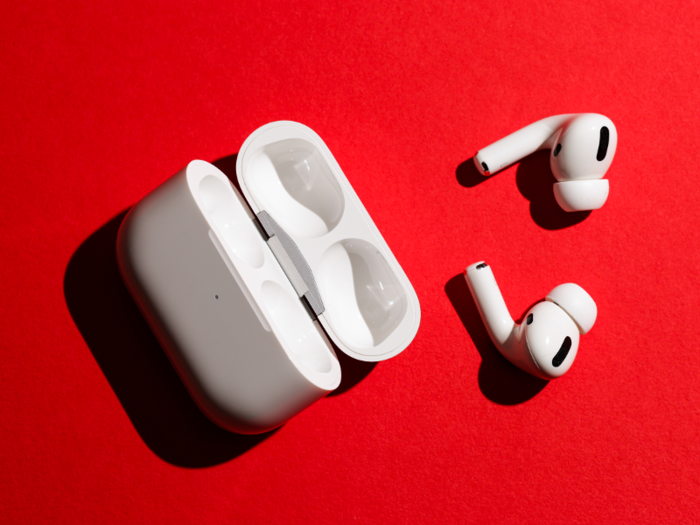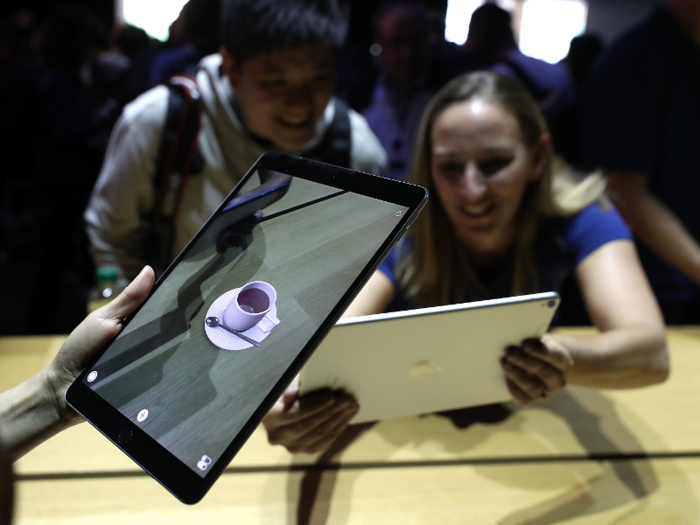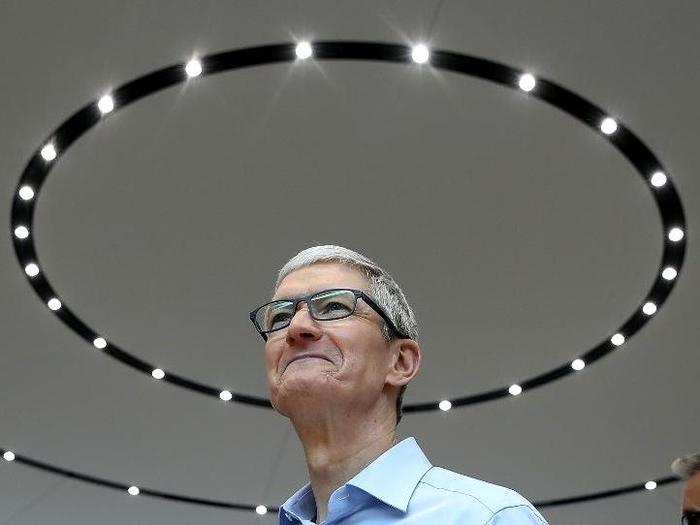- Home
- slideshows
- miscellaneous
- Next year is shaping up to be a huge moment for Apple as it's expected to reclaim dominance of the smartphone industry - here's what to expect in 2020
Next year is shaping up to be a huge moment for Apple as it's expected to reclaim dominance of the smartphone industry - here's what to expect in 2020
The iPhone 12 is expected to bring Apple's smartphone business back to growth.

AirPods are likely to continue being a massive success for Apple, strengthening the company's position at the head of the wearables market.

AirPods have existed since 2016, but Apple's wireless headphones had a breakout year in 2019. Apple released two new pairs of AirPods this year: an update to the original that brings optional wireless charging and hands-free Siri access, and a more expensive Pro model with active noise cancellation, a new design, and water resistance.
Apple doesn't break out specific sales figures for its AirPods, but reports have suggested that the $250 AirPods Pro have been a hit since their October debut. Apple is said to be doubling production of the AirPods Pro to keep up with demand, according to Nikkei Asian Review, and Apple's wearables, home, and accessories business grew by more than 50%, driven by sales of AirPods and the Apple Watch.
Analysts predict that this growth will continue throughout 2020. AirPods sales doubled to $6 billion in 2019 and are expected to generate $15 billion in revenue in 2020, Bernstein's Toni Sacconaghi recently wrote in a note reported by CNBC. That falls in line with previous predictions from Wedbush Securities Daniel Ives, who said that AirPods shipments would grow from 60 million units in 2019 to between 85 million and 90 million units in 2020.
Apple could make a bigger push into augmented reality, possibly setting the stage for its next major product.

Apple is expected to outfit its next-generation iPhones and iPad Pros with three-dimensional cameras that can provide more authentic augmented reality experiences, according to Bloomberg. Such an addition would make Apple's mobile gadgets better at scanning the real world and recreating and augmenting it digitally, an improvement that could be critical ahead of the company's long-rumored augmented-reality (AR) headset.
Apple's iPhones have supported AR applications for years. But making AR the centerpiece of its most popular product could boost adoption of the technology, helping Apple generate demand for the AR headset it's rumored to be working on.
Reports suggesting that Apple is working on wearable AR gadgets have persisted for years, although the approach the company may take has varied over time.
Back in 2017, Bloomberg reported that Apple is working on a standalone AR headset that would have its own screen, processor, and operating system rather than relying on a smartphone to power it. An October 2019 report from TF International Securities analyst Ming-Chi Kuo suggests that Apple may be working with third-party companies to release AR accessories for the iPhone in the second quarter of 2020. Apple could also be planning to release a combined AR and virtual reality headset in 2021 or 2022 and a lightweight pair of AR glasses in 2023, says a more recent Bloomberg report.
Regardless, Apple CEO Tim Cook has high hopes for AR and the value it could bring to consumers. He's been a vocal supporter of the technology for years, saying in 2018 on the company's first-quarter earnings call that he sees AR as being "profound" and that it has the potential to "amplify human performance."
But there will probably be lingering questions about how well Apple's new services are faring, like Apple TV Plus.

Analysts are confident that Apple's premium digital entertainment service, Apple TV Plus, will be able to rack up subscribers in a market that's dominated by Netflix and has become increasingly competitive with newcomers like Disney.
But next year will be critical for Apple TV Plus, considering many customers who purchased new Apple devices in 2019 will be finishing their free 12-month trial and will have to decide if it's worth paying $5 per month.
Barclays analysts estimate that Apple TV Plus, which launched in November, could accumulate 100 million subscribers in its first year, according to CNBC. Wedbush Securities, however, has said that it could take three to four years for Apple's TV service to hit 100 million subscribers. Frost & Sullivan analyst Dan Rayburn said Apple TV Plus could reach 10 million subscribers in its first year, according to Fortune.
And concerns about whether Apple's size and influence have made it too powerful, especially when it comes to how the App Store is run, are probably going to persist.

Large tech firms like Apple, Google, Facebook, and Amazon have come under heightened scrutiny in 2019 over whether they're engaging in anticompetitive business practices. And those concerns probably aren't going to disappear in 2020.
Back in July, for example, the Department of Justice announced that it was launching a broad probe into market-leading platforms in online search, social media, and e-commerce. Representatives from Apple, Google, Facebook, and Amazon also appeared before a House subcommittee in July where they were grilled on how the size and impact of their respective business impacts competition.
For Apple, it's the App Store in particular that's come under scrutiny, as concerns have persisted over whether Apple should be allowed to run the same app marketplace in which it competes.
"It's got to be one or the other," Democratic senator and 2020 presidential candidate Elizabeth Warren previously said to The Verge, referring to Apple's relationship to its App Store. "Either they run the platform or they play in the store. They don't get to do both at the same time."
As Apple has launched its own apps and services, like Apple Music and screen time management controls for the iPhone, some app developers have come forward to suggest that Apple's position gives it an unfair advantage.
In April, for example, The New York Times reported that Apple had removed or restricted some parental control apps after launching its own similar feature for the iPhone. Music streaming giant Spotify also filed an antitrust complaint against Apple earlier this year. Spotify says that the 30% cut Apple takes from transactions made through the App Store makes it difficult for the company to price its Premium subscription competitively.
Apple says on its website that it invests in developers' success, adding that app makers have other channels available to them through which to distribute their products. But antitrust concerns are still very much on the minds of lawmakers and industry observers heading into 2020, suggesting that this is a topic that will likely come up again throughout the year ahead.
Popular Right Now
Advertisement